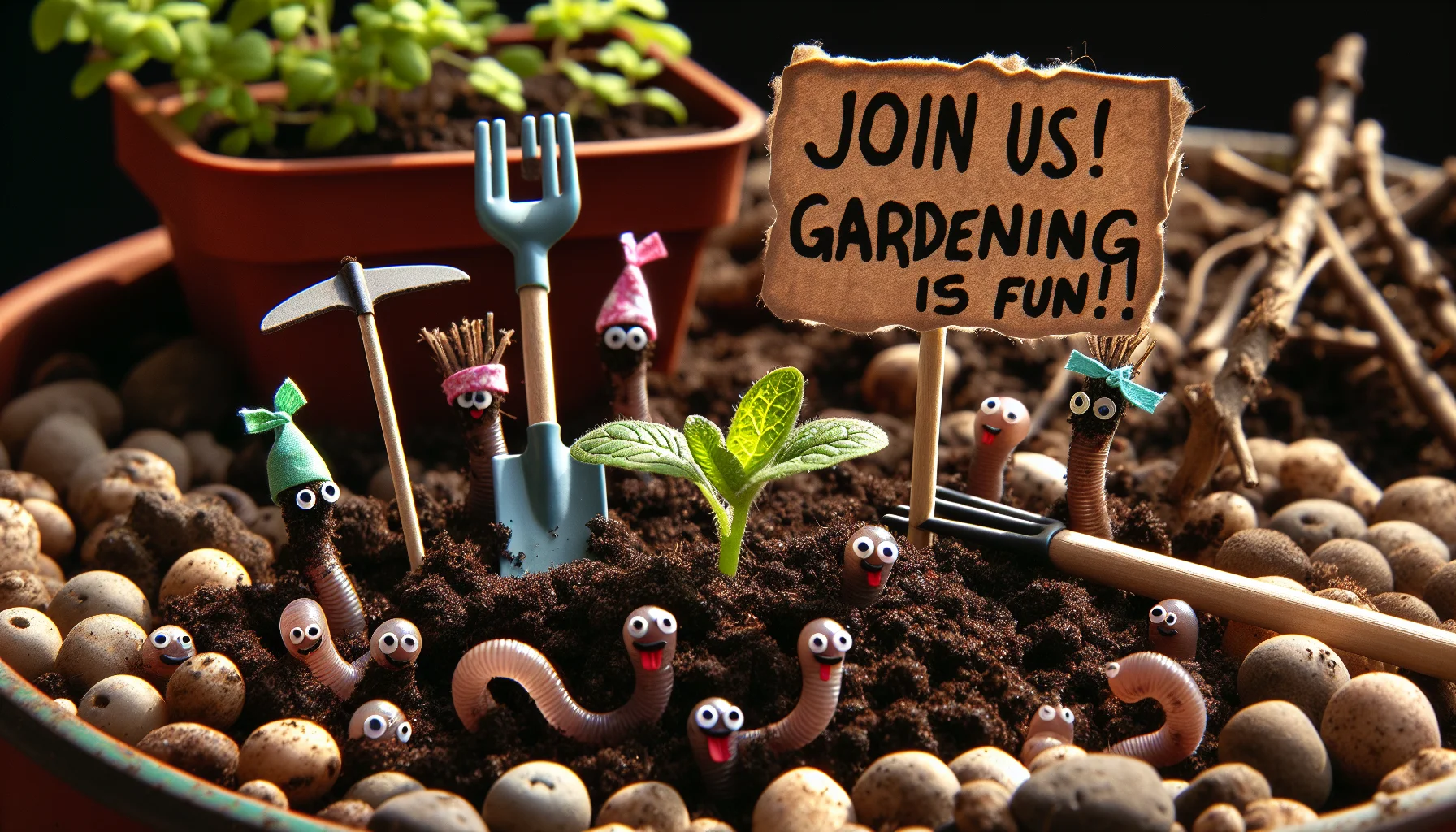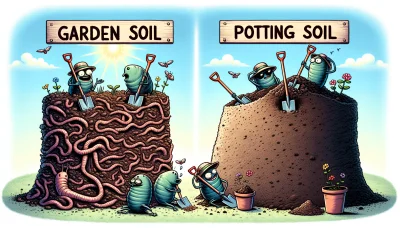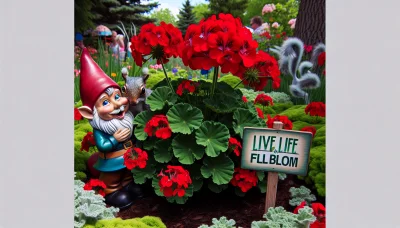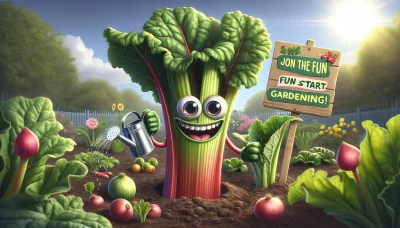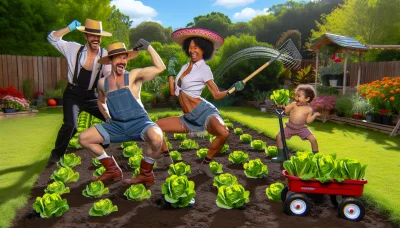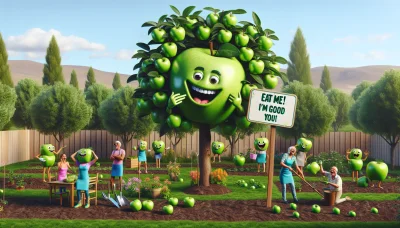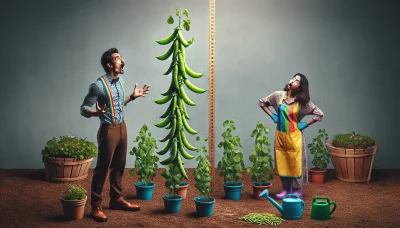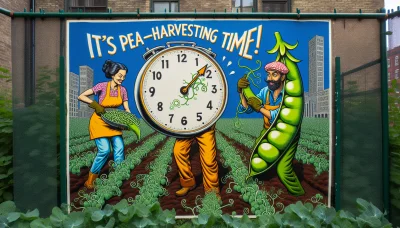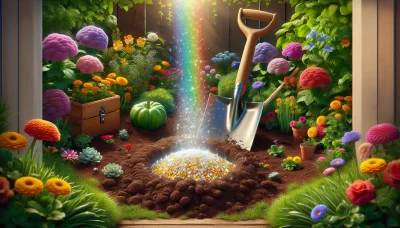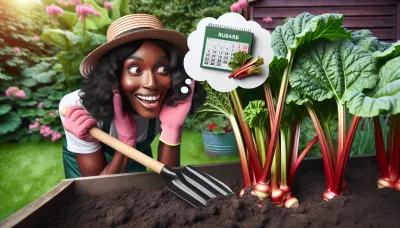What is garden soil Quiz
Test Your Knowledge
Question of
What is Garden Soil?
Garden soil is a natural body consisting of layers, primarily composed of minerals, organic matter, water, and air, that supports the growth of plants in a garden setting. It serves as the foundation for plant life, offering nutrients, anchorage, and a medium for air and moisture, which are essential for the growth and development of plants. The quality and composition of garden soil can greatly influence the health and productivity of a garden, making it a crucial element for successful gardening.
Types of Garden Soil
- Loam: This is considered ideal for gardening, combining sand, silt, and clay in a way that promotes water retention and fertility. It is well-draining yet retains moisture and nutrients, making it perfect for most plants.
- Clay: Clay soil is nutrient-rich but has poor drainage and can be hard for plant roots to penetrate. It warms up slowly in spring and tends to be heavy and compact.
- Sandy: Sandy soil has large particles and drains quickly but doesn’t hold nutrients well. It's easy to work with but requires frequent watering and fertilization to maintain plant health.
- Peat: Peaty soil is dark, soft, and rich in organic matter, offering high water retention. It is acidic, which can limit the variety of plants that can be grown unless amended to adjust the pH level.
- Silt: Silt soil has fine particles and is smooth to the touch. It retains water well and is fertile, but can become compacted easily. It offers good drainage and holds nutrients, making it beneficial for fertile gardens.
The Role of Organic Matter in Garden Soil
Organic matter plays a pivotal role in enhancing garden soil, significantly influencing its health and fertility. It improves soil structure by increasing its ability to retain water and nutrients, thereby creating a more conducive environment for plant roots to grow and access the resources they need. Additionally, organic matter is a key source of nutrients as it breaks down, releasing nitrogen, phosphorus, and potassium, which are essential for plant growth. This decomposition process also promotes the activity of beneficial microorganisms in the soil, further improving soil health and structure. The presence of organic matter in garden soil is crucial for sustaining vibrant plant growth, improving crop yield, and maintaining the overall ecosystem within the soil.
How to Improve Garden Soil
- Add compost to enrich the soil with nutrients
- Use mulch to retain moisture and suppress weeds
- Practice proper watering techniques to avoid soil erosion and nutrient leaching
- Adjust soil pH to the optimal range for your plants
Choosing the Right Soil for Your Garden
Selecting the appropriate soil for your garden is crucial for the health and growth of your plants. Different types of plants have varying soil requirements, and understanding these can make a significant difference in your gardening success. For instance, succulents and cacti thrive in well-draining sandy soil, while vegetables and flowers often prefer loamy soil, which retains moisture yet drains well. It's also important to consider the pH level of the soil; some plants flourish in acidic soil, whereas others prefer alkaline conditions. Testing your garden's soil and amending it according to your plants' needs can lead to a lush and vibrant garden. Remember, investing time in choosing the right soil can save you from disappointment and yield fantastic results in your gardening endeavors.
Common Problems with Garden Soil
- Compaction: Soil becomes too dense, making it difficult for roots to grow. This can be identified by the difficulty in penetrating the soil with a shovel or a finger.
- Poor Drainage: Water pools on the surface and takes a long time to drain. This is often caused by compact soil or a high clay content.
- Nutrient Deficiency: Plants show signs of poor growth, discoloration, and reduced yields. This can be identified through soil testing or observing plant health.
FAQs on Garden Soil
| Question | Answer |
|---|---|
| How often should garden soil be replaced? | Garden soil doesn't necessarily need to be completely replaced often if it's well-maintained. However, replenishing nutrients with compost or organic matter annually is recommended. |
| Can garden soil be reused? | Yes, garden soil can be reused, but it's important to revitalize it by mixing in new compost or organic matter to replenish nutrients. |
| What is the best way to improve garden soil? | Adding organic matter such as compost, manure, or leaf mold is the best way to improve soil structure, fertility, and water retention. |
| How do I know if my garden soil is healthy? | Healthy soil is crumbly, full of organic matter, drains well yet retains moisture, and supports a vibrant ecosystem of worms and microorganisms. |
| Can I mix garden soil with potting soil? | Yes, you can mix garden soil with potting soil to improve the nutrient content and structure of the mix, especially for container gardening. |
| How can I test my garden soil's pH level? | You can test your soil's pH level using a home test kit, electronic pH meter, or by sending a sample to a local extension service or soil testing laboratory. |
